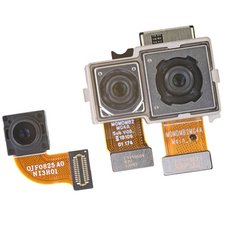Proposals to improve the computer devices and tutorials classification
Hello iFixit team,
Computer form factors and computer usage evolves with time.
So I would like to suggest an improvement in order to enhance the classifications of some computer-related devices in iFixit.
I noticed there are some repair tutorials related to servers (the kind of computers used by companies (e.g. : to host websites)). Servers are computers, but different from simple desktop computers as form factors and component differs and they are designed to be always powered on.
I also noticed iFixit has some guides related to nano computers and there are some devices page and repair tutorials that can be classified in this category (nano computers are also called small form-factor computers (the SFF acronym or MiniPC or nano-ordinateur can be used to refer to nanocomputers in France)). This kind of computer can be used in a lot of different ways, they can be used as headless servers, they can be used in embedded computing projects (when modified to be powered by batteries), they can also be used as a very small desktop computer (e.g. : intel NUC).
So I suggest creating two device pages (as categories) in order to improve classification of this specific kind of computer :
- One page for nano computers (nano-ordinateur) (device page called "Nano-computer")
- One page for Servers (device page called "Server")
The device categories are related to this category :
Do you agree with this idea ?
I created one of the 2 categories mentioned above as an example :
- Nano computers : https://fr.ifixit.com/Device/Nano_ordina...
If you agree :
- I will create the "Server" category
- Then I will be able to classify devices and tutorials related to these new categories (ex : intel NUC, raspberry pi, some server-related tutorials).
Thanks for reading :)
Is this a good question?

 31
31  12
12 


 1
1
2 Comments
Thanks for the ideas @es_six! I'll take these suggestions to our team and get back to you after we discuss. It'll take about a week to get to all the folks who need to be involved but I'll get back to you!
by Amber Taus
Thank you @amber :)
I added links to my first message as it seems I used an acronym that is misleading, because when used as an anglicism in French it designates something else than SFF in English. In my message I used the acronym SFF to designate "nano-ordinateur" devices like Intel NUC, Raspberry PI, BeagleBoard, etc. that are very small computers not intended to be "portable" devices (so they have no integrated screen and are not powered by a battery ).
Here is the SFF French Wikipedia page :
https://fr.wikipedia.org/wiki/Mini_PC
Here is the SFF English Wikipedia page :
https://en.wikipedia.org/wiki/Small_form...
by Brendan